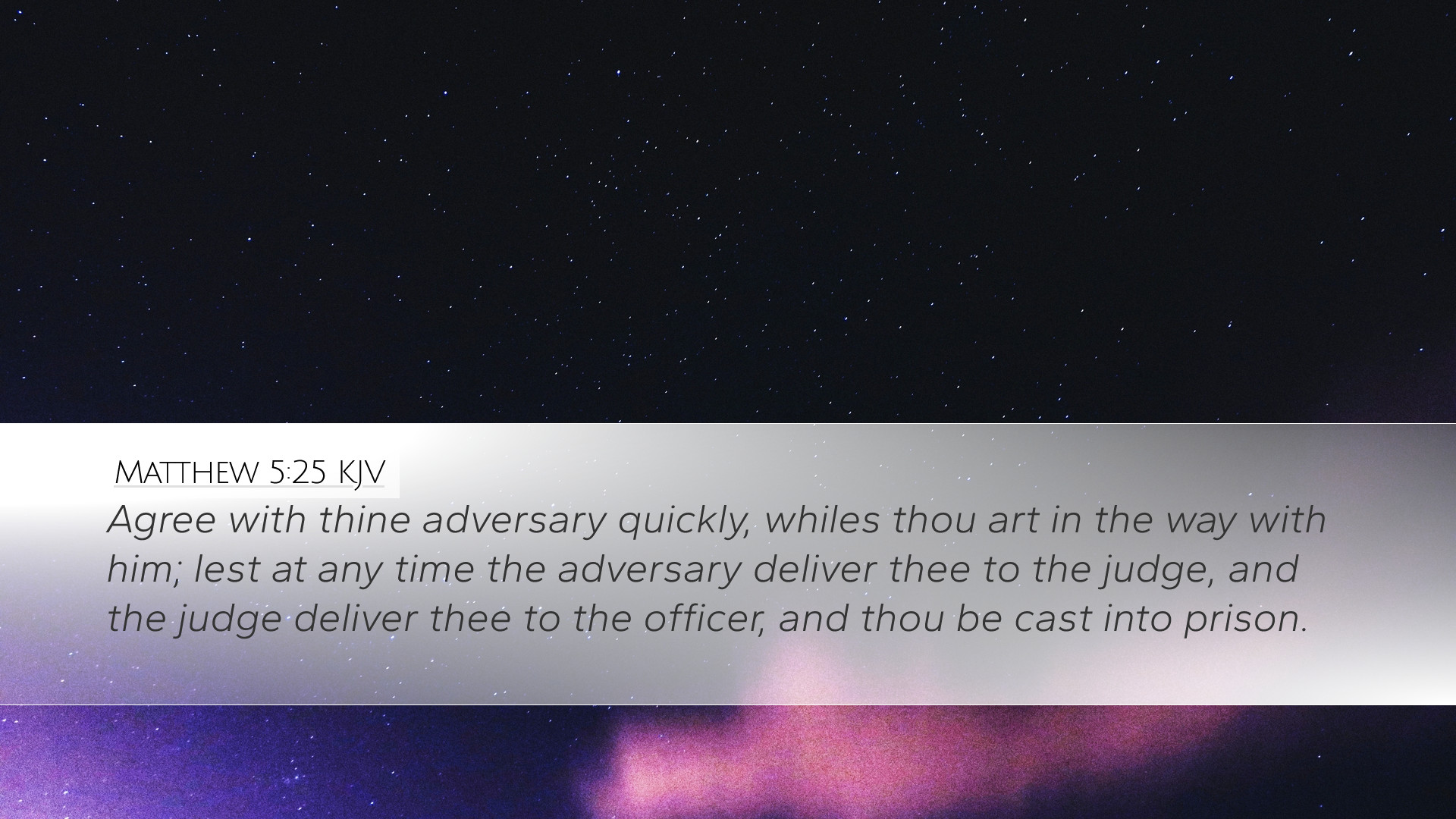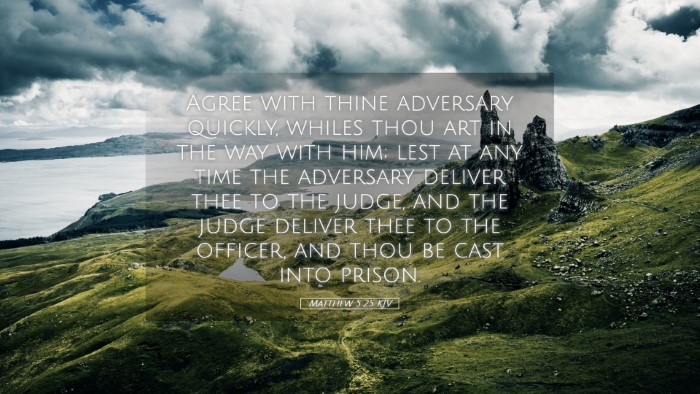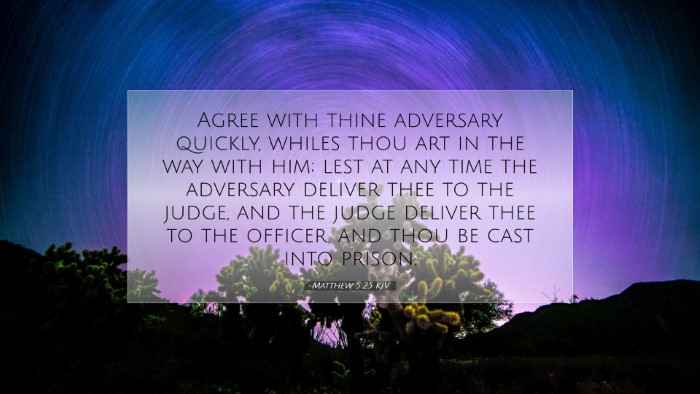Commentary on Matthew 5:25
Matthew 5:25 states: "Agree with your adversary quickly, while you are on the way with him, lest your adversary deliver you to the judge, the judge hand you over to the officer, and you be thrown into prison." This verse, set within the context of Jesus' Sermon on the Mount, offers profound teachings on conflict resolution and reconciliation.
Contextual Overview
In the tapestry of the Sermon on the Mount, Jesus addresses fundamental principles of the Kingdom of Heaven. Matthew 5:25 pertains specifically to interpersonal relationships and the necessity of maintaining peace.
Matthew Henry's Insight
According to Matthew Henry, this verse warns against the consequences of unresolved disputes. He emphasizes the urgency of reconciliation, suggesting that delaying agreement can lead to escalating conflict.
- Prompt Resolution: Henry underscores the idea that one should not allow disputes to fester, as doing so can lead to severe ramifications.
- Spiritual Implications: He suggests that there are spiritual consequences to unresolved issues, highlighting the necessity of aligning one's heart with the principles of Christ.
- Practical Advice: Henry encourages believers to settle matters amicably to avoid the inevitable escalation to confrontation with authorities.
Albert Barnes' Perspective
Albert Barnes provides a keen historical and cultural analysis of the implications of this verse in the Jewish legal system of the time.
- Legal Context: Barnes posits that in Jewish law, being taken to court had severe implications, and one could lose personal freedom or property.
- Preventive Measures: He highlights that by settling disputes early, one can avoid legal repercussions, making a case for wisdom in everyday interactions.
- Moral Application: Barnes emphasizes that this verse speaks to a broader moral obligation to seek peace and reconciliation, reflecting the character of Christ.
Adam Clarke's Exegesis
Adam Clarke adds depth by exploring the Greek terms used in the original text and the spiritual dimensions of this passage.
- Understanding Adversaries: Clarke translates "adversary" as one’s opponent or adversary in any conflict, emphasizing that this teaching applies to all relationships.
- Quick Agreement: He stresses the importance of quick resolution and the dangers of procrastination, which can lead to irreparable harm.
- Theological Implications: Clarke further examines how this scripture reflects God's desire for His people to live in harmony and to reflect His character through their relationships.
Theological and Practical Applications
This verse presents several significant implications for theological reflection and practical application:
- Christian Responsibility: Believers are called to actively seek peace and reconciliation, mirroring the character of Christ who ultimately reconciles mankind to God.
- Urgency of Reconciliation: The language used by Jesus conveys urgency; Christians must prioritize resolving conflicts before they escalate into more significant issues.
- Community and Unity: In a communal context, this verse encourages unity and could serve as a practical rule for church leaders and congregations alike.
- Implications for Leadership: Pastors and leaders can draw from this teaching an ethic of managing disputes within their communities, emphasizing early intervention and mediation.
Conclusion
Matthew 5:25 is more than a mere legalistic command; it is a profound exhortation toward living out the Gospel in our relationships. By drawing on the insights of Matthew Henry, Albert Barnes, and Adam Clarke, pastors, students, theologians, and scholars can appreciate the richness of Jesus’ teaching in overcoming conflict and fostering a spirit of reconciliation. This understanding not only embellishes personal faith but fosters a community that reflects God's love and peace in a world often marked by strife.


